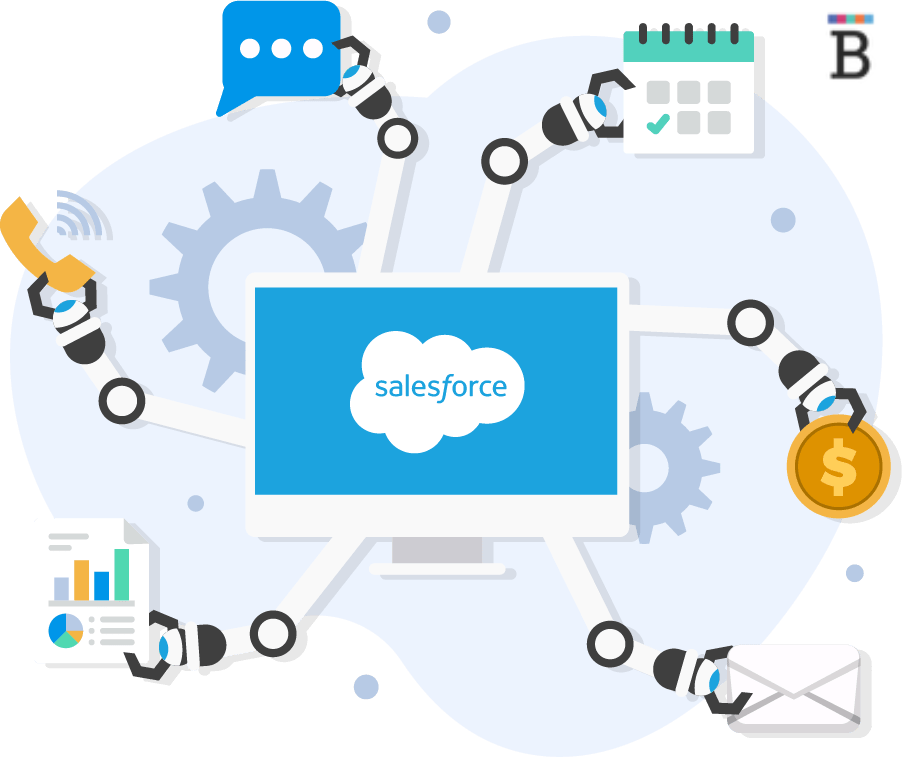Sales Force Automation (SFA) is a critical component of Customer Relationship Management (CRM) systems, designed to streamline and optimize the sales process. By automating repetitive tasks and organizing data efficiently, SFA empowers sales teams to focus on high-value activities, such as building customer relationships and closing deals. This article explores the key features, benefits, and strategies for leveraging SFA to drive business growth.
What is Sales Force Automation?
SFA uses software to automate routine sales tasks, such as data entry, lead assignment, and scheduling, while providing real-time insights into sales performance. By integrating tools for managing customer interactions, tracking opportunities, and forecasting revenue, SFA enhances efficiency and enables data-driven decision-making. It frees sales teams from administrative burdens, allowing them to prioritize strategic activities that boost productivity and revenue.
Key Features of Sales Force Automation
SFA software offers a range of features to streamline sales processes and improve outcomes. Common functionalities include:
- Contact and Account Management: Centralizes customer data for easy access and personalized interactions.
- Opportunity Management: Tracks leads and prospects through the sales pipeline, ensuring timely follow-ups.
- Task Management: Automates repetitive tasks, such as scheduling follow-ups or sending reminders.
- Email Integration: Syncs email communication with customer records for seamless correspondence.
- Product Visualization: Provides sales reps with detailed product information to share with clients.
- Sales Forecasting: Uses data to predict revenue and identify high-potential opportunities.
- Activity Tracking: Monitors customer interactions to provide insights into engagement and progress.
- Dynamic Sales Pipeline: Automatically updates revenue projections and conversion rates as leads move through the pipeline.
- Automated Lead Assignment: Assigns leads to the most suitable sales reps based on criteria like location, industry expertise, or deal size.
- Scheduling Tools: Simplifies meeting planning with clients, eliminating double-booking through integrated calendars.
These features ensure that sales teams operate efficiently and have the tools needed to close deals effectively.
Benefits of Sales Force Automation
Implementing SFA delivers measurable advantages for businesses, sales teams, and customers:
- Increased Productivity: By automating administrative tasks, sales reps can dedicate more time to strategic activities like client meetings and strategy development.
- Improved Customer Relationships: Centralized data ensures sales reps have up-to-date information, enabling personalized and timely interactions.
- Faster Sales Cycles: Automated workflows and real-time data reduce delays, helping sales reps close deals more quickly.
- Accurate Reporting and Forecasting: Timely and precise data leads to reliable sales reports and revenue predictions, supporting informed decision-making.
- Enhanced Team Collaboration: Notifications and shared dashboards keep team members aligned as prospects move through the sales pipeline.
- Higher Revenue and Market Share: Streamlined processes and improved efficiency drive more sales, increasing overall business growth.
SFA also allows managers to gain insights into the effectiveness of their business model, enabling them to refine strategies and adopt the most impactful approaches.
Strategies for Effective Sales Force Automation
To maximize the value of SFA, businesses should:
- Choose the Right Software: Select an SFA solution that integrates seamlessly with existing CRM systems and supports your team’s needs.
- Define Clear Processes: Streamline sales workflows to ensure automation aligns with your business objectives.
- Train Your Team: Equip sales reps with the skills to use SFA tools effectively, ensuring adoption and proficiency.
- Leverage Data Insights: Use real-time analytics to monitor performance, identify bottlenecks, and adjust strategies.
- Ensure Scalability: Choose a platform that can grow with your business and handle increasing data volumes.
Conclusion
Sales Force Automation is a powerful tool for modern businesses, enabling sales teams to work smarter, not harder. By automating repetitive tasks, providing real-time insights, and streamlining workflows, SFA boosts productivity, enhances customer relationships, and drives revenue growth. With the right strategy and tools, businesses can leverage SFA to stay competitive, optimize their sales processes, and achieve sustainable success.

